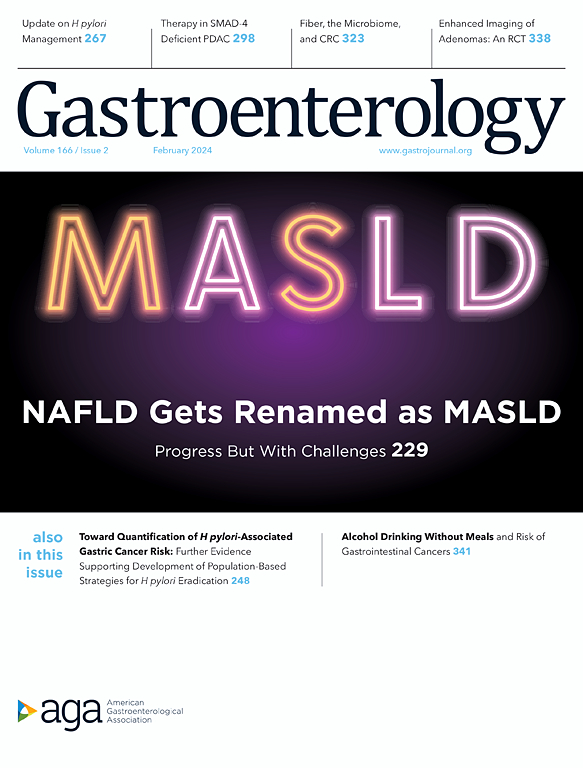胃肠病学的昼夜节律:生物钟对肠道健康的影响
IF 25.7
1区 医学
Q1 GASTROENTEROLOGY & HEPATOLOGY
引用次数: 0
摘要
慢性胃肠道(GI)疾病,包括功能性、炎症性和肿瘤性疾病,正在全球范围内上升,部分原因是现代生活方式。昼夜节律由下丘脑的中央时钟调节,并与胃肠道器官的外周时钟同步,协调胃肠道功能以响应环境周期。生物钟受到光线、睡眠和进食时间等因素的影响。昼夜节律机制使宿主准备好应对环境条件,从而相应地调整细胞和器官的功能。现代行为,如夜间光照、跨时区旅行、轮班工作、不合时宜的饮食和社交时差,都会扰乱生物钟,影响消化、吸收、运动、肠道屏障功能、免疫功能和微生物群等胃肠道过程,不仅会促进胃肠道病理,还会导致全身炎症和代谢紊乱。本文章由计算机程序翻译,如有差异,请以英文原文为准。
Circadian Rhythms in Gastroenterology: The Biological Clock's Impact on Gut Health
Chronic gastrointestinal (GI) diseases, including functional, inflammatory, and neoplastic conditions, are rising globally, partly due to modern lifestyles. The circadian rhythm, regulated by the central clock in the hypothalamus and synchronized with peripheral clocks in the gastrointestinal organs, orchestrates GI functions in response to environmental cycles. This clock is influenced by cues such as light, sleep, and eating times. The circadian machinery prepares the host to cope with environmental conditions to adjust cellular and organ function accordingly. Modern behaviors—like nighttime light exposure, travel across time zones, shift work, mistimed eating, and social jet lag—disrupt the circadian clock, affecting GI processes such as digestion, absorption, motility, intestinal barrier function, immune function, and the microbiome, promoting not only GI pathology, but also systemic inflammatory and metabolic disorders.
求助全文
通过发布文献求助,成功后即可免费获取论文全文。
去求助
来源期刊

Gastroenterology
医学-胃肠肝病学
CiteScore
45.60
自引率
2.40%
发文量
4366
审稿时长
26 days
期刊介绍:
Gastroenterology is the most prominent journal in the field of gastrointestinal disease. It is the flagship journal of the American Gastroenterological Association and delivers authoritative coverage of clinical, translational, and basic studies of all aspects of the digestive system, including the liver and pancreas, as well as nutrition.
Some regular features of Gastroenterology include original research studies by leading authorities, comprehensive reviews and perspectives on important topics in adult and pediatric gastroenterology and hepatology. The journal also includes features such as editorials, correspondence, and commentaries, as well as special sections like "Mentoring, Education and Training Corner," "Diversity, Equity and Inclusion in GI," "Gastro Digest," "Gastro Curbside Consult," and "Gastro Grand Rounds."
Gastroenterology also provides digital media materials such as videos and "GI Rapid Reel" animations. It is abstracted and indexed in various databases including Scopus, Biological Abstracts, Current Contents, Embase, Nutrition Abstracts, Chemical Abstracts, Current Awareness in Biological Sciences, PubMed/Medline, and the Science Citation Index.
 求助内容:
求助内容: 应助结果提醒方式:
应助结果提醒方式:


